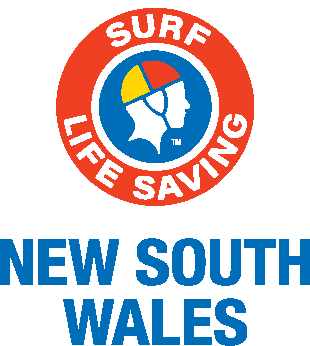Volunteer surf lifesavers and lifeguards remained focused on preventing coastal drownings throughout the busy summer school holiday period despite their considerable involvement in the NSW bushfire emergency response.
Lifesavers worked hard to prevent rescues and potential drownings on the NSW coastline with preventative actions up by 15% to 109,000 over the school holiday period - compared to 95,000 during the previous 2018/19 summer school holidays.
The school holiday period culminated in a busy Australia Day long weekend for lifeguards and lifesavers as beachgoers flocked to the coast to enjoy perfect beach weather.
Volunteer surf lifesavers in the Illawarra region responded to several critical incidents over the long weekend requiring significant member involvement, medical assistance and resuscitation.
On the Australia Day public holiday, a middle-aged man almost drowned after getting caught in a rip while swimming in an unpatrolled area of Woonona Beach near Bulli. He was among four people, believed to be from the same family, who were rescued by two IRB crews.When lifesavers reached the man he had ingested a considerable amount of water and was struggling to remain conscious.
"He was drifting in and out of consciousness. We had to give him oxygen and keep him awake until the NSW Ambulance came and transported him to Wollongong Hospital,” said volunteer surf lifesaver Anthony Turner.
In a separate incident, Illawarra lifesavers pulled an unresponsive, middle-aged woman from the surf at Thirroul. She was unconscious and not breathing but was revived by lifesavers who performed CPR and provided medical assistance until paramedics arrived.
At Short Point on the NSW Far South Coast, Australian Lifeguard Service (ALS) lifeguards responded to reports of an elderly female missing in an unpatrolled area. Lifeguards commenced a search and located the woman unconscious in the water. The woman was returned to the beach on a rescue board and lifeguards commenced CPR. NSW Ambulance paramedics attended and took over CPR but unfortunately the woman could not be revived.
Surf lifesavers on Sydney’s Northern Beaches were kept particularly busy with a total of 77 rescues across the Australia Day long-weekend. This was well up on the previous year's 20 rescues. On Australia Day itself, rescues were up considerably from eight last year to 38 this year.
What is particularly remarkable about the summer school holiday period just ended is that in addition to keeping beachgoers safe, ALS lifeguards and volunteer lifesavers were heavily involved in the remarkable response to the bushfire crisis on the state’s North Coast and Far South Coast.
Over New Year’s Eve, more than 7,000 people sought shelter at surf life saving clubs at Bermagui, Broulee and Batemans Bay on the NSW Far South Coast. Surf lifesavers provided thousands of people with food, shelter and medical assistance – particularly oxygen therapy for breathing difficulties caused by smoke inhalation.
Director of Lifesaving at Surf Life Saving NSW, Joel Wiseman, said that despite the commitment of volunteer surf lifesavers and lifeguards to the bushfire emergency, there was no increase in drownings on the NSW coastline during the summer school holiday period.
"I'm enormously proud of our ALS Lifeguards and volunteer lifesavers who not only responded quickly to the bushfire emergency and recovery, but managed to stay focused on their core responsibility of keeping the public safe on the NSW coastline.
“The unprecedented bushfire crisis across NSW and Australia has really hit home to me just how much communities rely on volunteers from organisations like Surf Life Saving, RFS, SES and Marine Rescue, who worked together to keep communities safe during a crisis.
“Our volunteer lifesavers and lifeguards are the embodiment of everything Australians aspire to be; community-focused, empathetic, team players,” Wiseman concluded.
Since July 1 2019, there have been 25 drowning incidents on the NSW coastline. Twelve of these have occurred over the summer period (since December 1 2019).
Wednesday 29 January 2020


